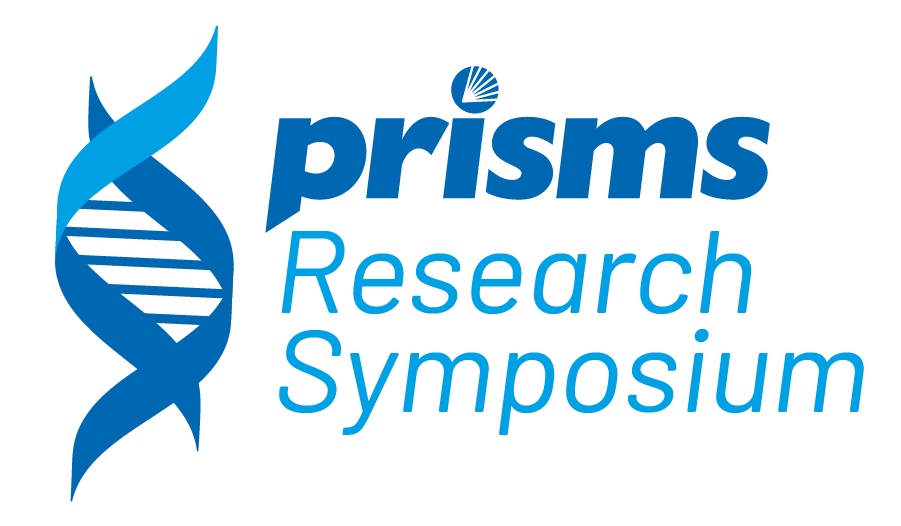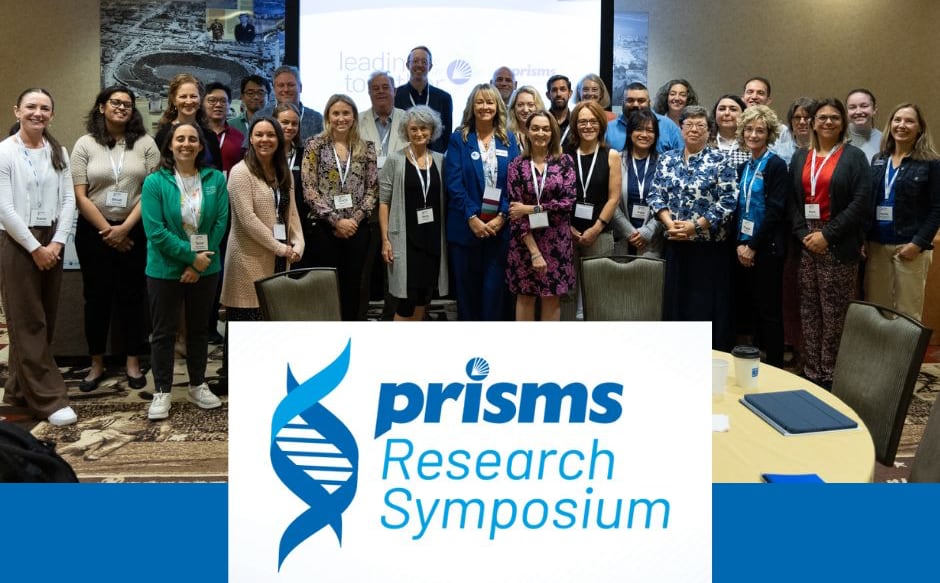
PRISMS 2024 11th SMS Research Symposium
July 10 – July 11, 2024
Bringing together researchers from around the world to share and collaborate on research about Smith-Magenis Syndrome
For a full listing of the abstracts presented at the 2024 PRISMS Research Symposium, please see the 2024 PRISMS Research Symposium Abstracts page.
PRISMS convened the 11th SMS Research Symposium in Dallas, TX, on July 10-11, 2024, which preceded the PRISMS International Conference. The first ever hybrid symposium hosted researchers from around the globe and allowed for engagement from our in-person and virtual attendees. The symposium also adopted the theme of the PRISMS conference, “Leading the Way Together,” which dovetails with the one of the symposium goals:
“Further research by building productive collaborations—including cross-disciplinary dialogue, partnerships, integration of researchers new to SMS but with interest in specific facets of the syndrome.”
We want to thank Vanda Pharmaceuticals who sponsored the symposium. We are grateful for their continued support and generosity.
After a “Call for Abstracts,” (research summaries), researchers across many disciplines submitted abstracts which were defined by a strict criterion and then reviewed by the PRISMS Professional Advisory Board. Accepted abstracts were then presented at the symposium. Travel scholarships were granted to some attendees, facilitating attendance for new researchers.
Symposium presenters represented academia and institutes including University of Michigan, McGill University, Emory University, Baylor College of Medicine, NIH/NHGRI (National Institutes of Health/National Human Genome Research Institute), University of Texas, University of Rochester Center for Health + Technology, Rady Children’s Hospital, University of Colorado Boulder, St. Louis Children’s Hospital, University of Florida and Sirius e.V. The presenters were part of a diverse landscape of SMS research from basic science to clinical research and practice. A representative from Sirius e.V. (the SMS parent advocacy group in Germany) also presented. Abstract presentations included oral presentations as well as poster presentations. Valuable time was also devoted to discussions and networking between the attendees. PRISMS also welcomed PTLS HOPE Research Foundation, (Potocki-Lupski syndrome), and researchers studying TCF20 syndrome, both also involve the key gene in Smith-Magenis syndrome – RAI1. We call ourselves the “RAI1 group,” and we commit to working together to pursue more research of the impact of RAI1 on these three disorders. We were very happy to include them and look forward to future endeavors.
We look forward to new collaborations on the horizon as a result of the symposium. We are grateful to our dedicated researchers for their continued work and their commitment to the SMS community.
For a full listing of the abstracts presented at the 2024 PRISMS Research Symposium, please see the 2024 PRISMS Research Symposium Abstracts listing.
PRISMS Symposium attendee quotes:
“I want to begin by expressing my gratitude for being part of this wonderful meeting. It was a great opportunity to learn from experts in the field and to interact with SMS patients. The meeting workflow was excellent, starting with basic science and concluding with clinical trials, which made it easier to comprehend. I thoroughly enjoyed every section, especially hearing SMS parents share their experiences and learning about SMS treatments outside the state, which provided both learning and inspiration.”
HaoCheng Chang, PhD, McGill University
“I am writing on behalf of the PTLS Hope Research Foundation team to extend our heartfelt thanks for inviting us to the PRISMS Symposium. It was an honor to be in the room with such remarkable parents, researchers, and scientists, all united in the fight for a common cause—improving the lives of individuals living with SMS and other rare diseases.”
Lucia Suazo
Co-Founder | Content & Data Lead | Research Advocate
www.ptlshope.org
“I got great feedback on our research and really appreciated the chance to share our work with the SMS community. I especially enjoyed the many interactions with clinicians and SMS parents – this gave me an entirely new perspective on many facets of SMS I had not fully appreciated previously. It also made clear how impressively strong and tight knit the SMS community is. The whole event was really informative and very well-balanced in terms of the talks and research presented. I feel very privileged to have been included.”
Michael Sutton, PhD, University of Michigan Medical School



